Industrial Building South Korea içindeki etkinlikler


OSC EXPO
OSC EXPO in Goyang: Shaping the Future of Modular and Smart Construction
The OSC EXPO, formerly known as MODULAR & PRE-CON KOREA, has become one of Asia’s most influential events dedicated to modern construction technologies and modular innovation. Held annually at KINTEX in Goyang, South Korea, the country’s largest and most advanced exhibition and conference center, the fair serves as a vital meeting point for industry professionals, architects, and technology innovators who are shaping the future of construction.
Organized by MESSE ESANG Co., Ltd., the OSC EXPO highlights the enormous potential of Off-Site Construction (OSC) a concept that emphasizes modularity, efficiency, and sustainability in building processes. By showcasing the latest developments in modular design, digital construction, and industrialized building systems, the event provides insights into how construction is evolving toward smarter, faster, and greener methods.
A Comprehensive Platform for Modern Construction
The OSC EXPO presents a vast array of topics and technologies that define today’s building industry. Its exhibition areas cover every aspect of modular and off-site construction, from design and engineering to material production and on-site assembly.
Exhibitors introduce innovative building structures that demonstrate the versatility of modular methods, including:
Modular houses and residential complexes,
Prefabricated bathrooms and kitchens,
Educational and public facilities,
Commercial and industrial buildings.
These displays illustrate how modular construction whether based on steel, concrete, or timber can significantly reduce construction time, enhance quality, and lower environmental impact. Each module represents a shift from traditional labor-intensive practices to industrialized precision building, where digital planning meets efficient manufacturing.
Innovations in Construction Technology
A key highlight of the OSC EXPO is its focus on technological advancements driving the next generation of construction. From intelligent software to automated production systems, the fair showcases tools that are revolutionizing how buildings are designed, constructed, and maintained.
Key Technologies on Display
BIM (Building Information Modeling): Integrated planning and project management through 3D modeling and data sharing.
Architectural Design Software: Advanced digital platforms for visualization, collaboration, and optimization.
Monitoring Systems: Real-time site management and quality control tools.
Drone and 3D Scanning Technology: High-precision surveying and structural analysis.
Robotics and Automation: Machines enhancing productivity, safety, and accuracy in both factory and on-site operations.
These technologies form the backbone of the digital transformation of construction, enabling greater efficiency and sustainability through data-driven decision-making and automation.
Materials, Machinery, and the Logistics Behind Building
While digital tools define the modern age of construction, materials and machinery remain the foundation of progress. The OSC EXPO places strong emphasis on construction materials, transport systems, and production equipment elements that make industrialized building feasible at scale.
Visitors can explore a comprehensive range of materials and systems, including:
Steel components and connecting elements for structural stability.
Precast concrete panels, slabs, and blocks for modular assembly.
ALC (Autoclaved Lightweight Concrete) panels offering thermal efficiency and reduced weight.
Reinforcement bars, mold forms, and surface finishing materials for durability and aesthetic quality.
Alongside these, production machines such as surface treatment systems, transport equipment, and packaging machines are showcased, reflecting how construction is increasingly adopting principles from manufacturing industries.
A particularly fascinating area of the exhibition is construction 3D printing, which demonstrates how additive manufacturing can produce structural components with reduced waste and unparalleled customization.
Engineering Excellence: Bridges, Tunnels, and Infrastructure
The OSC EXPO doesn’t limit its focus to residential or commercial buildings it also highlights infrastructure construction, showcasing the engineering methods and materials used for bridges, tunnels, and large-scale civil projects.
Through detailed presentations and model displays, visitors gain insight into:
Bridge construction techniques, including beam and strut systems.
Tunnel engineering, with emphasis on safety, efficiency, and material innovation.
Traffic and transport engineering solutions that integrate seamlessly with urban environments.
These segments reflect the fair’s holistic approach — recognizing that off-site construction and prefabrication technologies can revolutionize not only housing but also the broader infrastructure that supports modern societies.
The Role of KINTEX: A Gateway to Global Collaboration
The KINTEX Exhibition and Conference Center in Goyang serves as the perfect venue for an event of OSC EXPO’s magnitude. As South Korea’s most prestigious exhibition complex, it provides expansive space, modern facilities, and advanced logistical support, allowing exhibitors to present large modular units, full-scale prototypes, and operational machinery.
Its state-of-the-art conference halls host seminars, technical forums, and business meetings, where professionals can exchange ideas, discuss challenges, and form partnerships. The international nature of KINTEX also makes OSC EXPO an important hub for global collaboration, attracting participants from across Asia, Europe, and the Middle East who are eager to explore emerging construction opportunities in the region.
Sustainability, Efficiency, and the Future of Construction
The overarching theme of OSC EXPO revolves around sustainability and resource efficiency. Modular and off-site construction methods are inherently more sustainable, minimizing material waste, reducing energy use, and shortening construction time.
The fair emphasizes the alignment of industrialized construction with green building principles, showing how innovation can serve both environmental and economic goals.
Sustainability Highlights
Reduction of carbon emissions through optimized production processes.
Reuse and recycling of construction materials.
Design for disassembly — enabling buildings to be repurposed rather than demolished.
Integration of renewable energy technologies in modular systems.
This vision positions OSC EXPO as a pioneer of sustainable construction in Asia, encouraging both local and international industries to adopt smarter, cleaner, and faster building practices.
OSC EXPO – Building the Future, One Module at a Time
Since its origins as MODULAR & PRE-CON KOREA, the OSC EXPO has grown into a cornerstone event for the global construction community. By combining technological innovation, material excellence, and environmental responsibility, it redefines what is possible in modern building.
Organized by MESSE ESANG Co., Ltd., and hosted at KINTEX Goyang, the fair brings together the brightest minds and most forward-thinking companies in the industry. Whether you are an architect, engineer, contractor, or investor, the OSC EXPO offers an unparalleled opportunity to explore the latest trends, forge new partnerships, and witness the future of modular and digital construction firsthand.
In an era defined by speed, sustainability, and precision, the OSC EXPO stands as a symbol of progress where innovation meets construction, and the future begins today.

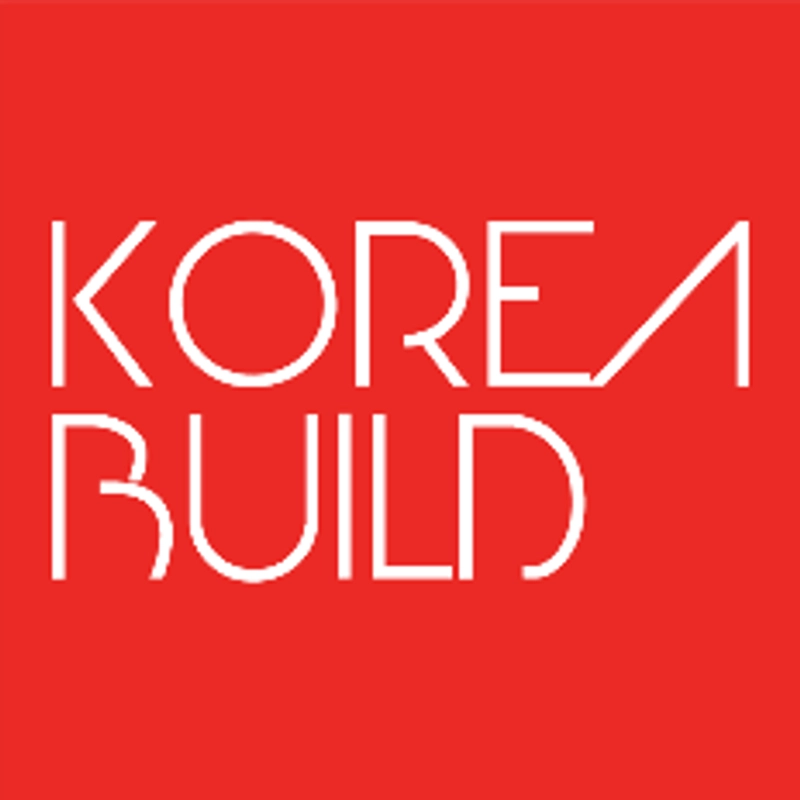
Korea Build Busan
Korea Build Busan: Connecting Ideas and Innovation in the Heart of South Korea’s Construction Industry
Korea Build Busan is more than just a building exhibition—it’s a central meeting point where South Korea’s vibrant construction sector converges with global innovation. Set in the iconic BEXCO convention center in Busan, this four-day event has become a must-attend occasion for anyone involved in construction, architecture, or building technologies. Each year, Korea Build Busan brings together thousands of professionals, from established manufacturers to forward-thinking architects, allowing for dynamic knowledge exchange, deal-making, and the showcasing of new ideas that are set to define the future of building in Asia and beyond.
Situated in one of South Korea’s most progressive cities, the event takes full advantage of Busan’s status as an economic and logistical hub. As the second-largest city in the country, Busan is known for its dynamic real estate development, advanced infrastructure, and growing demand for sustainable and smart construction solutions. It provides the perfect backdrop for this event, where innovation in building materials, systems, and design takes center stage.
An Immersive Platform for the Construction Industry
Korea Build Busan offers a complete ecosystem where professionals across the entire construction spectrum gather to learn, connect, and create. Whether you're seeking to enter the Korean market, meet potential buyers, or explore the latest smart building technologies, the exhibition provides a strategically designed environment that maximizes opportunity.
Participants can expect access to:
A comprehensive exhibition hall featuring local and global suppliers
Dedicated areas for live product demonstrations and technology previews
Industry-specific seminars and technical workshops
B2B matchmaking services curated for meaningful connections
Sustainable construction solutions and green design showcases
These features are designed not only to educate and inspire but also to initiate business. From material innovation to intelligent building systems, the full range of modern construction is represented, helping professionals keep pace with rapid market evolution.
Key Attendees and Industry Sectors Represented
One of the most remarkable strengths of Korea Build Busan lies in the diversity of its audience. The event is attended by a wide variety of industry players, making it an ideal environment for cross-disciplinary dialogue and collaboration.
Attendee profiles typically include:
Architects and architectural technologists
Construction companies and general contractors
Engineers and urban planners
Interior and exterior designers
Developers and real estate investors
Smart building and automation experts
Government regulators and policy advisors
With such a broad range of participants, the event becomes a fertile ground for innovation. Professionals from different corners of the industry gain insight into emerging solutions, regulatory shifts, and new partnerships—creating a ripple effect that influences projects long after the expo ends.
A Glimpse Into the Future: Technologies and Trends
Each edition of Korea Build Busan highlights key themes that reflect the ongoing transformation in the construction industry. These are not just passing trends, but deeply impactful shifts that are reshaping how buildings are designed, constructed, and used.
Among the technologies and topics often featured:
Green and energy-efficient building materials
Smart city integration and IoT for buildings
Prefabrication and modular construction methods
BIM (Building Information Modeling) applications
High-performance insulation and ventilation systems
AI-driven project planning tools
Sustainability-focused architecture and zero-energy design
These themes are explored not only in exhibition booths but also in thoughtfully curated seminars and workshops. This gives visitors the chance to go beyond marketing and gain deeper technical understanding directly from developers and product designers.
Workshops and Seminars: Learning from the Industry's Best
In addition to its robust exhibition, Korea Build Busan offers a rich educational program. Attendees are invited to participate in a variety of learning experiences designed to address today’s most urgent industry challenges.
The educational segment typically includes:
Keynote speeches from leading architects and engineers
Technical workshops on materials and methods
Government briefings on policy and regulation
Panel discussions on sustainability and urban planning
Case study presentations of successful projects
These sessions are not only insightful but also deeply practical. Whether you're looking for ideas to improve project efficiency, reduce environmental impact, or introduce a new product to the Korean market, there’s something valuable in every seminar.
Why Korea Build Busan Stands Out in Asia’s Event Calendar
Amid a growing number of construction-related events across Asia, Korea Build Busan distinguishes itself with its focus on actionable outcomes and its strong connection to both domestic and international networks. It is not merely a showcase—it is a dynamic hub of market intelligence and relationship building.
What sets the event apart:
High-quality curation of exhibitors
Strong public and private sector engagement
Emphasis on smart and green construction
Real business opportunities through structured networking
Cultural access to one of Korea’s most innovative cities
This blend of commerce, culture, and cutting-edge technology creates an atmosphere that attracts both newcomers and returning participants, year after year.
A Gateway to Korea’s Booming Construction Market
South Korea is undergoing a period of significant growth and transformation in its built environment. From urban regeneration projects to massive infrastructure development, the country continues to invest heavily in building the cities of tomorrow. Korea Build Busan offers a gateway for foreign companies to tap into these opportunities and for domestic companies to showcase their expertise to a global audience.
By participating in the event, companies gain access not only to the Korean market but also to regional partnerships across East Asia. The strategic location of Busan—both geographically and economically—makes it an ideal launchpad for regional expansion and innovation exchange.
Building Partnerships, Building the Future
Korea Build Busan is far more than a date on the construction calendar—it is an event that moves the industry forward. It’s where products are launched, deals are signed, ideas are formed, and relationships are strengthened. In a world where the pace of innovation is relentless and the demand for sustainable, smart, and adaptive construction is growing, this event provides the space for professionals to pause, connect, and reimagine what’s possible.
From cutting-edge technology to timeless design, from policy insight to strategic partnerships, Korea Build Busan is the ultimate convergence point for those shaping the future of our built environment—one building, one connection, one idea at a time.

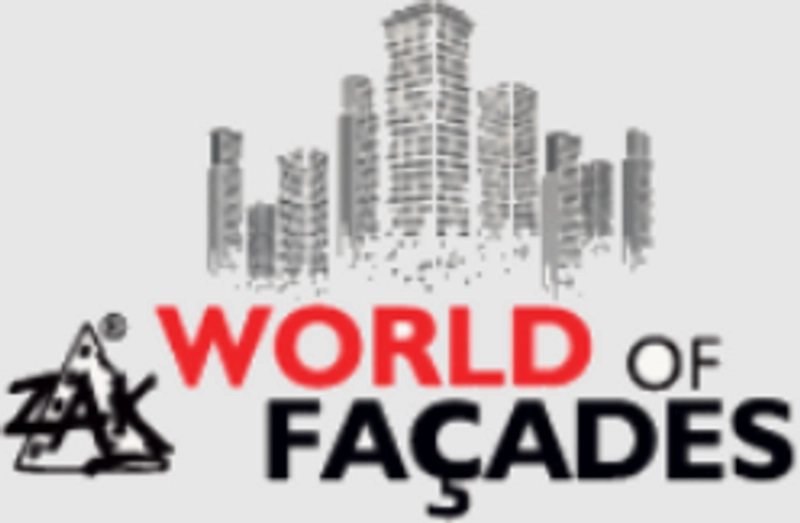
Zak World of Facades South Korea
Zak World of Facades South Korea: Leading the Future of Facade Innovation and Sustainable Design
The Zak World of Facades South Korea, held in the bustling city of Seoul, is a distinguished event that gathers architects, engineers, facade specialists, and industry leaders under one roof. This exhibition and conference stand as a significant opportunity to explore the latest innovations in facade technology while emphasizing sustainable design principles. With a focus on cutting-edge materials and emerging trends, the event plays a pivotal role in advancing the understanding and application of modern facade engineering within the architectural community.
The event provides a comprehensive insight into the technologies that redefine how facades contribute to building performance, energy efficiency, and aesthetic appeal, making it an essential gathering for professionals aiming to stay at the forefront of the industry.
Exploring Cutting-Edge Innovations in Facade Technology
Zak World of Facades South Korea showcases an array of technological advancements that influence contemporary facade design. Participants can discover:
New materials that enhance thermal insulation and durability
Smart facade systems integrating automation for improved functionality
Advanced fabrication and installation techniques increasing precision and reducing waste
Solutions focused on energy efficiency and environmental impact
This variety of offerings supports architects and facade engineers in adopting innovative approaches to meet current building challenges while maintaining sustainability.
Engaging Expert Discussions and Interactive Learning Opportunities
One of the event's highlights is its commitment to fostering knowledge exchange through multiple formats. Attendees benefit from:
Panel discussions featuring renowned architects and facade experts who share their experiences and insights
Case study presentations showcasing innovative facade projects with sustainable and aesthetic successes
Workshops that delve into practical challenges and solutions in facade design and construction
Networking sessions designed to build meaningful professional connections and collaborations
These activities provide a holistic educational experience, encouraging attendees to bring back actionable knowledge to their own projects.
Emphasis on Sustainability: A Core Theme of the Event
Sustainability is deeply embedded in the agenda of Zak World of Facades South Korea. The event highlights how modern facades contribute significantly to greener buildings by:
Using recyclable and eco-friendly facade materials
Employing design strategies that optimize natural light and ventilation
Integrating shading devices and energy-saving automation systems
Reducing carbon footprints through innovative thermal and moisture management
The focus on sustainable design ensures that the facade industry continues to evolve in harmony with global environmental goals, reflecting Seoul’s position as a forward-thinking metropolis.
Why Industry Professionals Choose Zak World of Facades South Korea
The event attracts a diverse audience, including architects, engineers, facade consultants, manufacturers, contractors, and researchers. This diversity creates a vibrant platform for:
Discovering the latest trends and technologies in facade engineering
Networking with leading professionals and potential collaborators
Gaining insights into regional and global facade market developments
Exploring business opportunities with top suppliers and service providers
This dynamic environment encourages professional growth and innovation, making the event a must-attend for those committed to pushing the boundaries of facade design.
Shaping the Future of Facade Engineering in Asia and Beyond
Zak World of Facades South Korea offers a unique convergence of innovation, sustainability, and expertise in the field of facade design and technology. It stands out as a crucial event for professionals dedicated to creating smarter, more sustainable, and visually compelling building envelopes.
Participating in this event allows attendees to stay ahead of industry trends, connect with influential leaders, and contribute to shaping the future of architectural facades in the rapidly evolving global landscape.

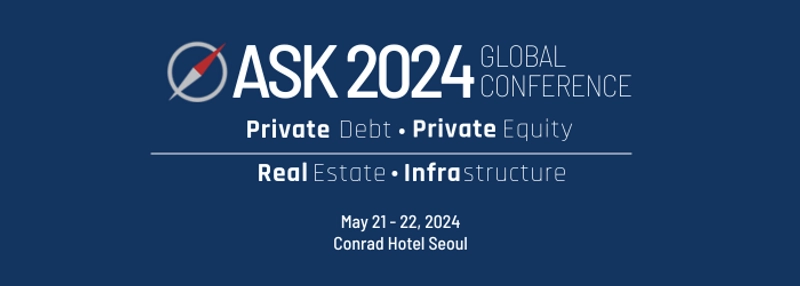
Real Estate & Infrastructure Summit
Real Estate & Infrastructure Summit at Conrad Seoul: A Turning Point for Future Urban Development
A Premier Gathering of Industry Leaders in the Heart of Seoul
The Real Estate & Infrastructure Summit, hosted at the iconic Conrad Seoul in South Korea, has quickly become one of the most influential events in the property and infrastructure investment calendar. Taking place in the financial hub of Yeouido, this summit attracted key stakeholders from across the globe—urban planners, architects, infrastructure developers, real estate investors, and government representatives—eager to explore what the future of cities and investments holds.
Conrad Seoul, nestled within one of the most modern complexes in South Korea, provided not only a luxurious backdrop but also a symbolic environment for high-level conversations about real-world transformation. The event focused on collaboration, innovation, and sustainability, resonating with pressing global challenges such as climate resilience, smart infrastructure, and responsible urban expansion.
Driving Forces: Themes That Shaped the Summit
The summit unfolded over two engaging days filled with keynote presentations, panel discussions, networking events, and interactive sessions. A common thread across all discussions was the need for innovation in both real estate and infrastructure development.
Real Estate Transformation: From Ownership to Experience
The shift from static ownership models to dynamic, experience-driven real estate was a significant focus. Traditional definitions of value in property are being upended by lifestyle demands, flexible workspaces, and hybrid living models.
Key real estate trends discussed included:
The rise of mixed-use developments that combine retail, residential, and office spaces.
Decentralization of business districts due to remote work.
Vertical urbanism, especially in megacities with limited horizontal space.
Technology integration, from AI-based security systems to smart home automation.
These trends are not just shaping investment decisions but are also influencing policy changes and long-term urban planning efforts globally.
Investing in Infrastructure: The New Economic Engine
Infrastructure was highlighted not merely as a support system, but as an investment opportunity with immense returns—financial, social, and environmental. With urban populations surging, modern cities demand resilient, scalable, and tech-integrated infrastructure. As discussed in multiple sessions, infrastructure now plays a dual role: facilitating economic activity and driving innovation.
Key priorities discussed included:
Smart mobility systems that reduce congestion and carbon emissions.
Resilient utility frameworks, particularly in energy and water supply.
Public-private partnerships (PPPs) as a tool for infrastructure financing.
Data-driven city management systems that use real-time information to optimize urban services.
The summit offered compelling case studies of success from cities like Singapore, Tokyo, and Stockholm, showing how infrastructure investments have fueled inclusive growth and quality of life.
Urban Resilience and Sustainability at the Forefront
A defining narrative of the Real Estate & Infrastructure Summit was sustainability. Every speaker, whether from the private or public sector, emphasized the necessity of embedding environmental thinking into every layer of urban and real estate strategy.
Cities of the future must be:
Energy-efficient
Low-carbon
Resource-conscious
Resilient to climate shocks
The summit highlighted Seoul's own journey as a living case study. From its smart waste disposal systems to eco-parks built over former highways, the city is leveraging its technological expertise and strong governance to build a model for the world to follow.
Bridging Investment and Policy: Building Future-Ready Cities
Policy reform emerged as a critical enabler. Governments around the world are beginning to understand the interdependence between well-framed urban policies and attractive investment climates.
At the summit, experts from international financial institutions and ministries shared insights on:
Simplifying regulatory frameworks
Creating incentives for sustainable building
Ensuring fair access to land and property for all socioeconomic classes
One of the most appreciated sessions involved a panel of mayors and city managers sharing their local challenges and innovations. The audience gained valuable perspectives on how policy and private sector energy can work hand in hand.
Interactive Formats and Tangible Outcomes
Unlike traditional conferences, the Real Estate & Infrastructure Summit made intentional efforts to keep the experience participatory. This meant small-group ideation sessions, real-time polls, VR presentations of futuristic urban spaces, and even matchmaking for potential investors and developers.
Highlights from the interactive programs included:
A virtual tour of Seoul’s underground smart city infrastructure.
Real-time design simulation for flood-resilient housing.
One-on-one pitch sessions for green startups to connect with impact investors.
These engagements weren’t just symbolic—they seeded partnerships and pilot projects that will be closely monitored and possibly scaled over the coming years.
Key Takeaways and Future Directions
The Real Estate & Infrastructure Summit at Conrad Seoul proved that when thoughtful design, innovative finance, and proactive governance come together, cities can evolve into equitable, sustainable, and intelligent habitats.
Some of the major conclusions from the summit were:
Cross-sector collaboration is no longer optional—it is essential.
Data and digital infrastructure will define competitive cities.
Urban planning must center on people, not just buildings.
Sustainability is not a trend, but a baseline requirement.
Investment in real estate and infrastructure needs long-term, climate-aware thinking.
With follow-up forums planned for Hong Kong, Dubai, and Toronto in 2026, the summit has laid a strong foundation for continued global dialogue. The community built in Seoul will be crucial in driving urban evolution forward.
The Real Estate & Infrastructure Summit held at Conrad Seoul, South Korea, did more than just convene industry leaders—it planted seeds for a new vision of urban life. In a world grappling with climate change, rapid urbanization, and digital disruption, the event offered clarity, strategy, and above all, hope. As participants returned home, the message was clear: the future of cities will be built today, together.

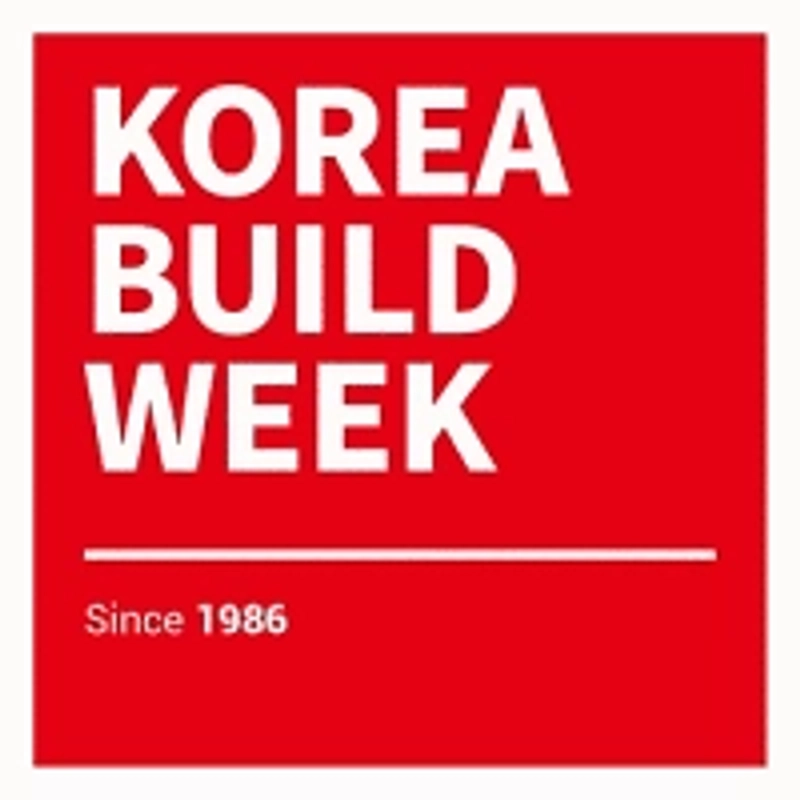
Korea Build Week
KOREA BUILD WEEK stands as one of Asia’s leading trade fairs, drawing attention from professionals across the globe in the fields of construction, architecture, and interior design. First held in 1986, this bi-annual event has since grown into a vital meeting point for industry leaders, offering an unparalleled platform for innovation and exchange. Organized by MESSE ESANG Co., Ltd, a renowned name in the trade fair industry, KOREA BUILD WEEK has developed a strong reputation for staying ahead of the curve, consistently featuring the latest technologies and trends that shape the future of the built environment.
The exhibition showcases a broad spectrum of industries, including construction materials, interior design solutions, and cutting-edge technologies like digital construction, off-site building methods, and smart infrastructure. The event’s dynamism is reflected in its continuous expansion, with new themes and solutions added regularly to keep pace with global developments. Key areas of focus at the event include air purification systems, fire protection technology, digital construction safety management, and electric vehicle charging infrastructure—reflecting the ongoing evolution of the construction and architecture sectors towards sustainability and digital transformation.
The fair’s diverse exhibition themes are one of its defining features. Building Materials showcases the latest in construction components and materials, ranging from insulation and windows to doors and building ventilation systems. This section emphasizes the importance of high-quality, efficient materials in creating sustainable and durable buildings. Interior Decoration focuses on integrated solutions for interior design, offering everything from marble and tiles to lighting fixtures and bathroom fittings, essential for creating aesthetically pleasing and functional spaces.
KOREA BUILD WEEK also highlights the latest in Construction Technology and Equipment. This segment features products and technologies like BIM (Building Information Modeling), digital twins, and advanced construction safety technologies, all of which are revolutionizing how buildings are designed, constructed, and maintained. Visitors can explore cutting-edge tools and software that are making the construction process more efficient and precise. The Building Installations theme introduces a range of systems aimed at enhancing the efficiency of buildings, covering areas such as electricity, plumbing, air conditioning, and ventilation—integral for the functionality and comfort of modern structures.
With its comprehensive focus on every facet of construction and architecture, KOREA BUILD WEEK serves as a dynamic showcase for industry professionals to discover new products, learn about emerging technologies, and connect with global leaders in the field. Whether you're an architect, builder, developer, or interior designer, this trade fair offers valuable insights into the future of construction, providing a unique opportunity to stay ahead of the latest trends and innovations that are transforming the industry.

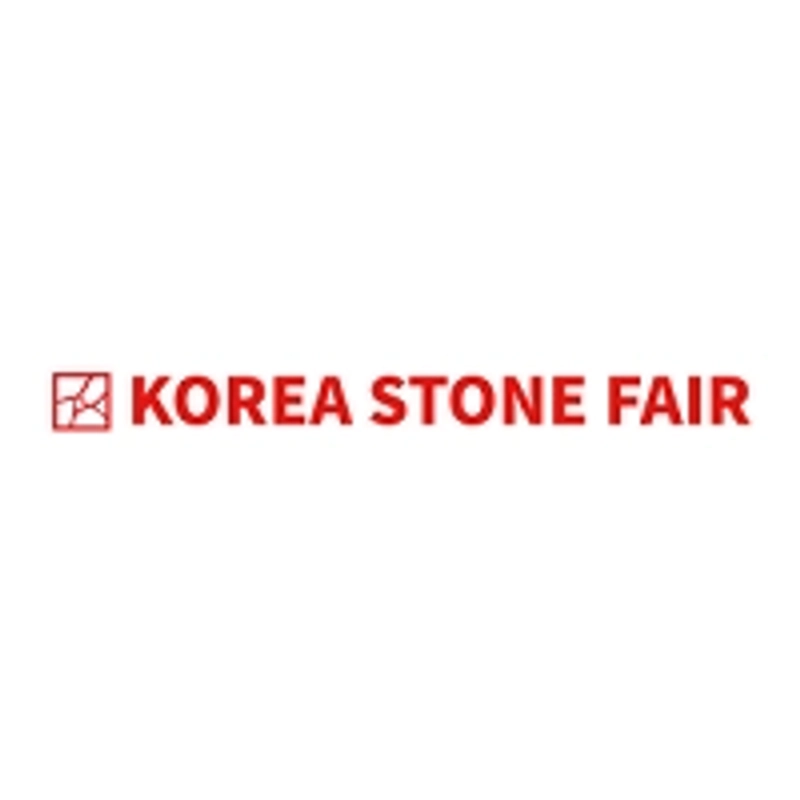
Korea Stone Fair
The KOREA STONE FAIR is a specialized trade exhibition that has become an essential event for professionals in the stone industry. Held annually and organized by MESSE ESANG Co., Ltd., this fair serves as a central hub for showcasing various stone-related products and technologies. With a strong focus on natural stones, ceramic tiles, artificial stone, and the machinery, tools, and chemicals used in the stone industry, the event provides a comprehensive platform for both showcasing and discussing the latest innovations in the field.
One of the fair's standout features is its alignment with the KOREA BUILD WEEK, Korea's largest construction and architecture exhibition. This synergy greatly enhances the scope of the event, providing attendees with an unparalleled opportunity to explore not only stone-related products but also a wider range of products and services from the construction and architectural industries. The intersection of these two significant events offers a broader perspective and more in-depth insights into the developments and trends shaping the future of both sectors.
The KOREA STONE FAIR attracts a diverse audience, including construction companies, architects, designers, stone mining and processing companies, stone wholesalers, and manufacturers of building materials. This broad spectrum of attendees highlights the extensive application of stone products and solutions across different industries. For exhibitors, this diversity presents a unique opportunity to showcase their products and technologies to a knowledgeable and varied audience, fostering valuable business connections and generating new opportunities for collaboration.
The event is also known for its interactive exhibits and hands-on demonstrations, which allow attendees to experience the latest technologies and techniques in stone processing firsthand. Additionally, networking events and expert-led lectures from industry leaders add significant value to the fair, creating a space for knowledge exchange and inspiration. The expert insights shared during these sessions not only deepen attendees' understanding of the stone industry but also highlight the innovative advancements that are shaping its future.
The KOREA STONE FAIR stands out as an indispensable event for professionals in the stone industry and those working in related fields. Its combination of high-quality product presentations, expert insights, and networking opportunities makes it a must-visit for anyone looking to stay at the forefront of the stone industry, whether they are involved in construction, design, manufacturing, or retail.